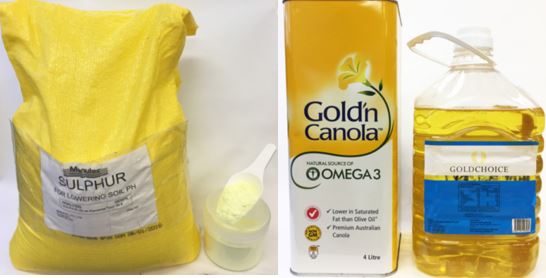In the aim of clean up our planet, scientists have formulated a way of using waste cooking oil and sulphur. By using these materials, they have devised a way to separate the neurotoxin mercury from the environment.
Scientists at the Flinders University have discovered that the dynamic new canola oil polymer can trap the most unsafe and basic sorts of mercury contamination.
In this spearheading new innovation, scientists have combined second-hand cooking oil and sulphur. By doing this, they have produced a new kind of polymer to use in remediation of soil, water, and even the air.
The polymer absorbs mercury pollution and changes its color after completing the task.
Scientist Dr. Justin M. Chalker from Flinders University said, “Our previous research studied a single type of inorganic mercury, so this is a significant advance.”
“With the Minamata Convention on Mercury coming into force around the world this year, this discovery is an important advance in protecting the environment and human health.”
Mercury pollution is a pernicious problem around the world. Additionally, every atom of the mercury-binding material can be gotten from industrial results. In short, this is a serious issue that causes brain damage and loss of IQ points in unborn children. Thus, this is also an exciting advance in recycling and re-purposing waste.
According to scientists, this latest development will enhance future sustainability and environmental protection, with few remediation methods readily and affordably available.
Dr. Chalker explained, “In this practice, mercury metal is used to extract gold from ore. The mercury-gold amalgam that forms is then heated, often with a hand torch or on a cooking stove, to vaporize the mercury and isolate the gold.”
“The mercury rich tailings and exposure to mercury vapor threaten the health of the nearly 15 million people involved in this process.”
Currently, the mercury-binding polymer is licensed for sale to Kerafast, a US-based reagent company.
Journal Reference
- Max J. H. Worthington, Renata L. Kucera, Inês S. Albuquerque, Dr. Christopher T. Gibson, Alexander Sibley, Dr. Ashley D. Slattery, Dr. Jonathan A. Campbell, Salah F. K. Alboaiji, Katherine A. Muller, Jason Young, Nick Adamson, Dr. Jason R. Gascooke, Dr. Deshetti Jampaiah, Dr. Ylias M. Sabri, Prof. Suresh K. Bhargava, Dr. Samuel J. Ippolito, Prof. David A. Lewis, Prof. Jamie S. Quinton, Prof. Amanda V. Ellis, Dr. Alexander Johs, Dr. Gonçalo J. L. Bernardes, Dr. Justin M. Chalker. Laying Waste to Mercury: Inexpensive Sorbents Made from Sulfur and Recycled Cooking Oils. Chemistry A European Journal 2017 Vol 23, Issue 64 DOI: 10.1002/chem.201702871

